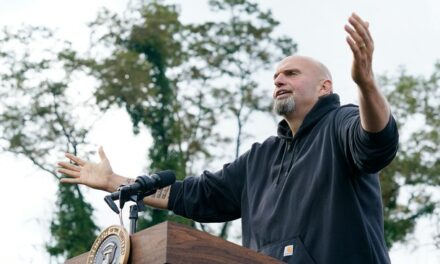We support our Publishers and Content Creators. You can view this story on their website by CLICKING HERE.

For a political hack like me, there is always the next election. And the next presidential election.
So, although it’s very early, let’s take a gander at the 2028 presidential race. Today, I wanted to discuss (almost) Vice President JD Vance. If the economy is average to good in 2027, I believe Vance will be sitting pretty when (I don’t believe it is “if”) he runs for president.
Advertisement
Here is why.
Vance would be seeking to follow a two-term president. Since 1988, when I first started personally observing political races, there have been two instances of a vice president attempting to move up directly. In 1988, when Republican George H. W. Bush ran following Ronald Reagan, and in 2000, when Democrat Al Gore ran, following Bill Clinton. Both men were running under good circumstances for the incumbent party. The former won; the latter narrowly lost.
While both men had the benefit of running in the wake of a popular two-term president, both also had a big negative hill to climb, too – after two terms in office, there is a natural reaction against the incumbent president that favors a new and contrasting kind of person from the other party. This is why, until Bush (I) won, no vice president had directly succeeded (via election) his president since Martin Van Buren had succeeded Andrew Jackson in 1836.
The key to both the 1988 and the 2000 races was how well the incumbent vice president prepared for this natural reaction against his president. In 1988, while Reagan was popular and well-liked, many swing voters were tired of his (supposedly) “hard-right” conservative ideology. Michael Dukakis, the Democrat nominee, ran to counter that, claiming to represent the desire for a less-ideological-but-competent person. And when Bush (I) won, he did so by running as a “kinder, gentler” version of Reagan, and after demolishing Dukakis’ claim to competence (anyone remember Dukakis on the tank, or the Willie Horton ad)? In 2000, while Clinton was also popular, his philandering, corruption, flagrant dishonesty, and impeachment were major problems for Gore. People were looking for a better person on all fronts. And in that instance, Gore lost the race very narrowly, as George W. Bush (II) came across as honest, sincere, and not a womanizer, while Gore had his own corruption issues (e.g., Chinese funny money and “no controlling legal authority”). It was only because Bush (II) mishandled his two-decades-old DUI that the race ended up so close.
Advertisement
I think we all know what people will be tired of about Donald Trump in 2027. That is because we are in an almost unique situation here, with a non-consecutive two-term president (only the second such president). In 2020, Trump was very narrowly ousted from the presidency. Although I believe there remains legitimate skepticism regarding that election, at the same time, some swing voters did react against Trump for his “mean tweets” problem. These voters voted in favor of a (supposedly) nicer and more well-mannered individual, Joe Biden (which Biden, a long-time low-class jerk and a crook, somehow was able to pretend to be). It was only when Biden completely failed as president that the swing voters decided that a good economy and less chaos was well worth the “mean tweets.”
Unless Trump changes his spots completely over the next few years, which I strongly doubt he plans to do, I expect that the past will be the prologue, and the swing voters will be tired of his “mean tweets” yet again.
Which brings me to JD Vance.
At first, I was not enamored with Vance’s performance in the 2024 vice-presidential debate. He didn’t do what the conventional wisdom said vice presidents were supposed to do – be the attack dog against the opposing presidential team. Instead, he was a very well-mannered, very polite candidate. Of course, Donald Trump doesn’t really need an attack dog; but still, this was what I had expected to see, and when I didn’t see it, I was disappointed.
Advertisement
In retrospect, Vance’s performance in the debate actually did quite well for him. Prior to it, all voters knew about Vance was the hostile Democrat propaganda that he was “weird,” too ideological, and too young. But, as the snap polls and other polling showed post-debate, Vance greatly benefitted from his appearance on the vice-presidential stage. I can also tell you that both of my parents, moderate Republicans, were absolutely gushing about Vance after his debate (before it, he barely registered with them).
To sum up, I suspect that 2028 will be a slightly different version of 1988, and that the natural reaction against the incumbent Republican Party might again be trumped (Ha!) by a new, “kinder, gentler,” Republican candidate. If that is indeed the case, then JD Vance already has a leg up in the campaign.

 Conservative
Conservative  Search
Search Trending
Trending Current News
Current News 





